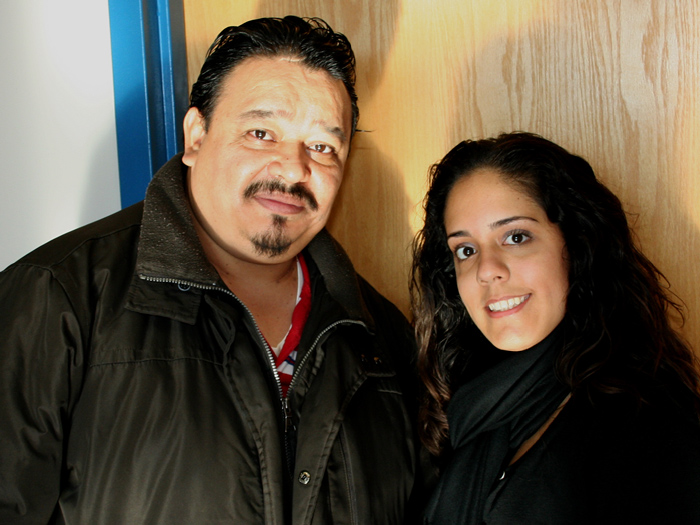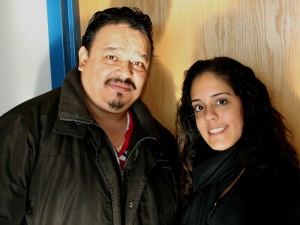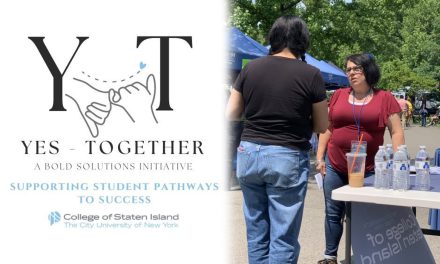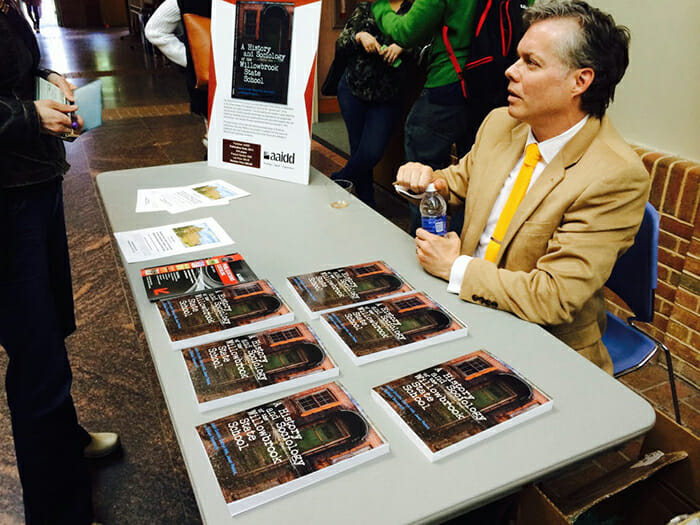Students of Hispanic descent at the College of Staten Island had the rare opportunity to participate in the StoryCorps Historias project last week.
The project, according to a StoryCorps statement “is a groundbreaking initiative in partnership with the Latino Public Radio Consortium, Latino USA, and the U.S. Latino and Latina World War II Oral History Project, to record and preserve the diverse stories and life experiences of Latinos in the United States.”
Last Thursday, nine CSI students had the chance to interview their relatives and fellow classmates for the project. The overall attitude from the participants was one of enthusiasm and pride.
Érika Valdez, a junior who is double-majoring in Spanish and English, said, “It was fun. I honestly enjoyed it.”
Érika interviewed Rodolfo Rivera, a senior who is also a double-major in Spanish and English. He walked over the U.S. border over 20 years ago with a ninth-grade education and no clear plans for the future. Since then, he worked to get his documents, go back to school, and become a pastor on Staten Island. He eventually hopes to become a teacher “to give back whatever I can.”
Érika shared her feelings regarding the importance of her interview with Rodolfo. “I believe it’s important because there are many others standing in [Rodolfo’s] shoes who don’t have the ability to succeed, and he has mastered it. He serves as an example that although you are an immigrant and many might discriminate against you, you are no different than anybody else.”
Rodolfo agreed with Érika, when discussing his take on participating in the project. “I feel privileged because I’m being the voice of many who may never have the chance to voice their opinions.”
Kelyn Potes, a sophomore Spanish major, interviewed her father, Ramiro, who came to the United States from Colombia. She also appreciated the experience because “we get to speak about our experiences and let other people know about them.”
Constance Vélez, a junior who is majoring in Spanish, stressed the social significance of the project for the Hispanic community and beyond. “It’s a great way to show others the way we view each other and how, sometimes, we criticize each other instead of actually being able to understand one another–where we come from, what we do with our lives, and how we grew up, based on what we learned.”
The StoryCorps Historias project at CSI was coordinated by Dr. Sarah Pollack, an Assistant Professor of Spanish at the College. Dr. Pollack reported that “Gabriel Higuera, the Senior Coordinator of the Historias project within StoryCorps contacted CSI Anthropology Professor Ismael García-Colón because his research includes interviewing Hispanic migrant workers…Ismael, in turn, contacted a couple of us who have been involved in the creation of the Certificate in Latin American, Caribbean, and Latina/o Studies (CLACLS). He did not have time to pursue the project, but I was very interested in following through and involving the students from my SPN 455 class (Contemporary Latin American Novel).”
Students in Dr. Pollack’s SPN 455 class have been examining Latin American fiction written during the last 15 years that explores the current state of politics, history, and social issues in the region. Several of these works are based on testimonials and the final novel they read focuses on immigration to the U.S.
In addition, Dr. Pollack noted that “the students in SPN 455 are all of Hispanic background, either the children of immigrants or immigrants themselves. They come from Colombia, Mexico, Puerto Rico, and the Dominican Republic. The opportunity to record their own stories or to interview someone seemed to complement perfectly the material we were studying. I asked students from the class if either they would be interested in being interviewed or knew someone they would like to interview, whose story otherwise might not get told.”
Now that this initial StoryCorps project has concluded, Dr. Pollack commented that other CSI students have expressed interest in doing interviews. She will be working with StoryCorps to see if the College of Staten Island can become a community partner. She added, “The opportunity to tell one’s story for posterity is empowering. Having a public record of the experiences and lives of Staten Island’s Hispanic population is a way for a more inclusive story of New York City to be told. This is a project that speaks to our diverse backgrounds, struggles, and accomplishments – all things that should be celebrated.”
For more information visit the StoryCorps Historias Website.


















